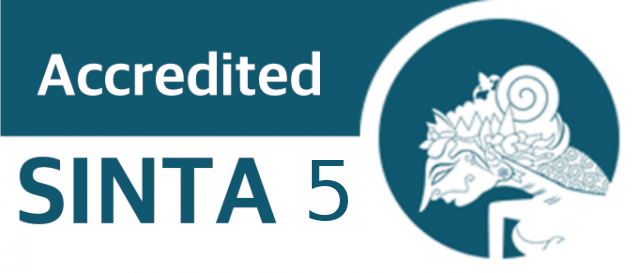PENDIDIKAN DAN MANDOK HATTA ETNIK BATAK TOBA
Abstract
This study explores the profound role of Mandok Hata, a traditional Batak Toba oral custom, as socio-cultural capital in fostering holistic educational development within the Batak Toba society. Moving beyond conventional formal learning paradigms, this research posits that Mandok Hata serves as a crucial indigenous pedagogical tool, transmitting values, ethics, historical knowledge, and social norms across generations. Through an ethnographic approach, this study investigates how the practice of Mandok Hata cultivates essential life skills, critical thinking, and a strong sense of community identity among Batak Toba youth, thereby complementing and enriching formal education. Findings reveal that the intricate layers of symbolism, rhetoric, and performativity inherent in Mandok Hata contribute significantly to the development of communicative competence, emotional intelligence, and cultural resilience. This research argues for the recognition and integration of such local wisdom practices into contemporary educational frameworks to achieve a more culturally relevant and holistic educational development that honors indigenous heritage while preparing individuals for modern challenges.
Keywords: Mandok Hata, Local Wisdom, Batak Toba, Holistic Education
Full Text:
PDFReferences
Awaru, A. O. T. (2020). Sosiologi Keluarga.
Balakrishnan& Frosty,2019,Qualitative Metods, The Routledge Handbook of Internasional Planning Education, 146-161
Citra Lidiawati a, M. P. (2023). Peran Orangtua dalam Membentuk Karakter Religius dan Jujur pada. 8(2), 147-155.
Citrawan, A. L., Prasetya, B., Jaya, M., & Ahdad, A. (2022). PENANGANGAN PERKARA TINDAK PIDANA KORUPSI. 51(April).
Desi Pristiwanti, Bai Badariah, Sholeh Hidayat, R. S. D. (2022). Pengertian Pendidikan. Jurnal Bioedukasi, 4(2), 7911-7915. https://doi.org/10.33387/bioedu.v6i2.7305
Fadli, Dzul, and Syah Wardi. "KAUM MODERNIS DI NUSANTARA : Jami ' at Khair." Islamijah: Journal of Islamic Social Sciences 2, no. 3 (2021): 144-56. https://doi.org/10.30821/islamijah.v2i3.17082.
Friska, T., Sitompul, D., Perdana, I., & Palangkaraya, U. (2021). Bahasa : Jurnal Keilmuan Pendidikan Bahasa dan Sastra Indonesia DAILY COMMUNICATION PATTERNS OF SOCIAL INTERACTION IN BATAK TOBA LANGUAGE POLA KOMUNIKASI SEHARI-HARI DARI INTERAKSI SOSIAL Bahasa : Jurnal Keilmuan Pendidikan Bahasa dan Sastra Indonesia. 3(2).
Jassin Tuloli H & Dian Ekawaty Ismail2016 ,Pendidikan Karakter: Menjadikan Manusia Berkarakter Unggul, Yogyakarta : UII Press
Jati, W. R. (2022). Polarization of Indonesian Society during 2014-2020 : Causes and Its Impacts toward Democracy. 26(2), 152-167.
Muradi, A., Ag, M., Fuady, M. N., & Ag, M. (2020). KURIKULUM PENDIDIKAN KELUARGA DALAM PERSPEKTIF HADITS.
Musoffa, Azzam, Muhammad Jihad Albanna, Hilda Lutfiani, Rasfiuddin Sabaruddin, and Syah Wardi. "THE DYNAMICS OF ACCEPTANCE AND RESISTANCE TO PRODUCTIVE WAQF: A Case Study of Mathali'ul Anwar and Al-Ishlah in Lamongan." MIQOT: Jurnal Ilmu-Ilmu Keislaman 48, no. 2 (2024): 188-205. https://doi.org/10.30821/miqot.v48i2.1271.
Nababan, K. R., & Kunci, K. (2023). Mandok Hata Sebagai Pendidikan Demokrasi dalam Kebudayaan Batak. 11, 23-40.
Novi Trislisiana dkk , 2023, Pendidikan Karakter, Kediri : CV Selembar Karya Pustaka.
Rachman, A. (2024). Metode penelitian kuantitatif, kualitatif dan r&d (Issue January).
Rajagukguk, G. L., & Iswari, R. (2023). Parhata sebagai Punguan Mahasiswa Batak Perantauan dalam Pelestarian Budaya Batak di Semarang Gaby Lasmaria Rajagukguk, Rini Iswari. 12(1), 47-56.
Rahmawaty, 2023, Pendidikan karakter berbasis nilai-nilai budaya Bugis "Sipakatau, Sipakalebi, dan Sipakainge" di Komunitas Peduli Anak Jalanan Makassar,Jurnal pendidikan karakter, Volume 14 Nomor 2 , Halaman. 177-186
Sihombing, A. A. (2018). Mengenal Budaya Batak Toba Melalui Falsafah " Dalihan Na Tolu " ( Perspektif Kohesi dan Kerukunan ) * Introductory of Batak Toba Culture with Philosophy of. Jurnal Lektur Keagamaan, 16, 347-371.
Simatupang, O., & Lubis, L. A. (2015). MAHASISWA BATAK DI YOGYAKARTA. Jurnal Komunikasi ASPIKOM, 2(1), 314-329.
Sugiyono. (2022). metode penelitian kualitatif. Albeta cv.
Syamilah, F., Yob, C., Azri, A., Ghani, M., Pek, L. S., Wong, R., Mee, M., Ismail, R., Nabilah, U., Tazli, A., Shahrom, T., & Shahdan, T. (2023). Children ' s emotion regulation strategies in facing the Volatile , Uncertain , Complex , and Ambiguous ( VUCA ) World : A systematic narrative review Strategi regulasi emosi anak-anak dalam menghadapi dunia Volatile , Uncertain , Complex , and Ambiguous ( VUCA ): Tinjauan naratif sistematis. 185-200.
Wardi, Syah, and Zuhri Arif. "A Critical Review on The Law of Cina Buta (Chinese Blind) According to Shaykh Abdul Qadir Bin Abdul Muthalib Al Mandili Al Indonesia Al Shafi'i." DIKTUM: Jurnal Syariah Dan Hukum 21 (2023): 15-23. https://doi.org/https://doi.org/10.35905/diktum.v21i1.4954
Wardi, S. & Waldi, I., 2021. DISKURSUS PENGAMALAN BERQURBAN MENURUT LDII DAN AL WASHLIYAH; BERQURBAN SECARA BERJAMA'AH (PATUNGAN). Islamijah: Journal of Islamic Social SciencesWardi, Syah, 2(1), p. 19.
Wenyu Lv.2023, Ethical Reflections on the Boundaries of Moral Indifference -To What Extent Are We Responsible For Others?,Journal Of Moral And Civiv Education, Volume 7 No 2 2023
Yohana, A., Amelia, T., Jupitasari, S., & Putri, N. (2022). Pembentukan Karakter Warga Negara Pada Masyarakat Kampung. 7(2), 186-193.
Yusuf, M. (2017). METODE PENELITIAN Kuantitatif, Kualitatif, dan Penelitian Gabungan.
Yusuf, M. (2023). Pendidikan Karakter di Masyarakat.
DOI: http://dx.doi.org/10.30821/islamijah.v6i3.23946
Refbacks
- There are currently no refbacks.
Indexed by:







